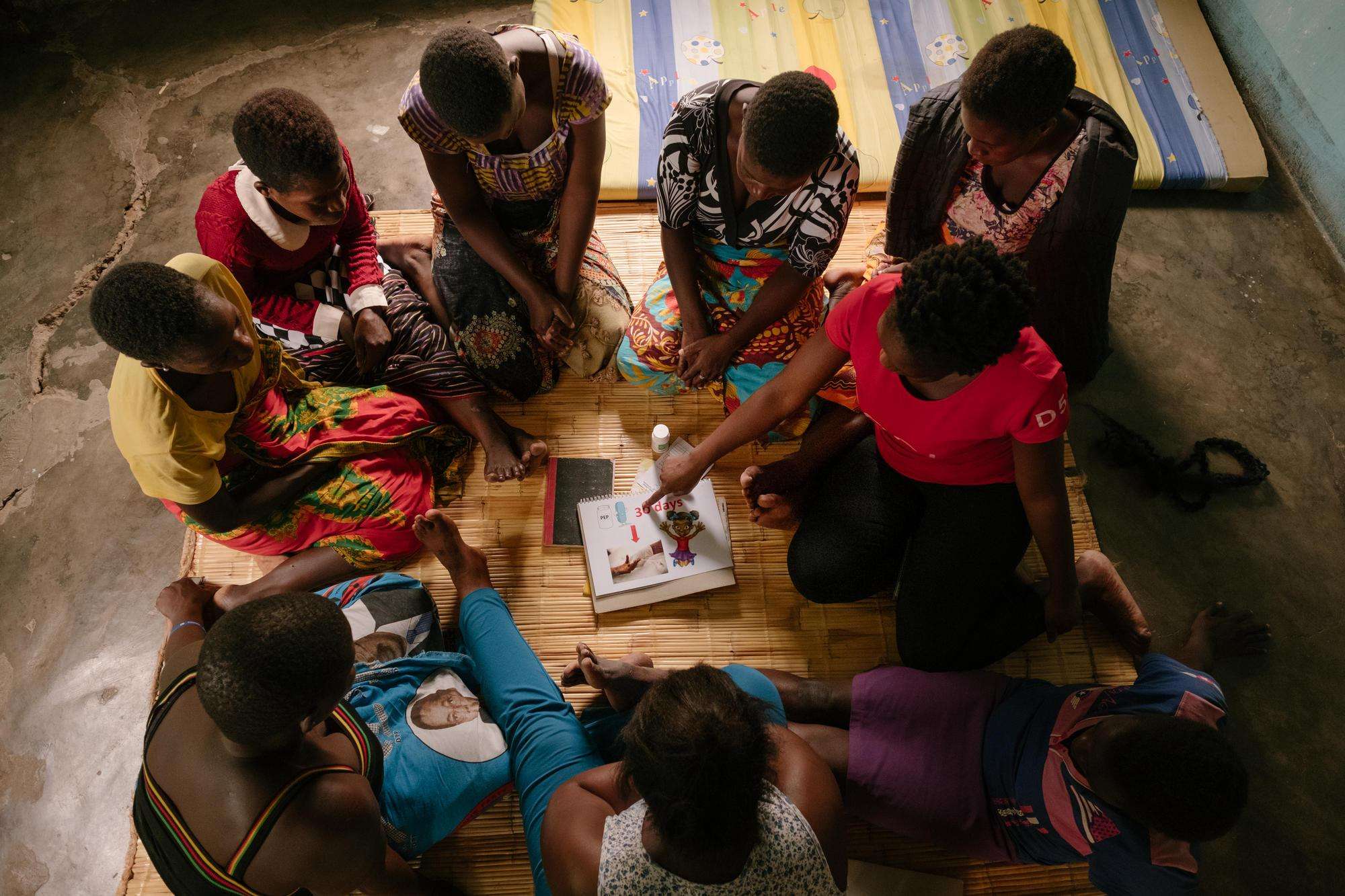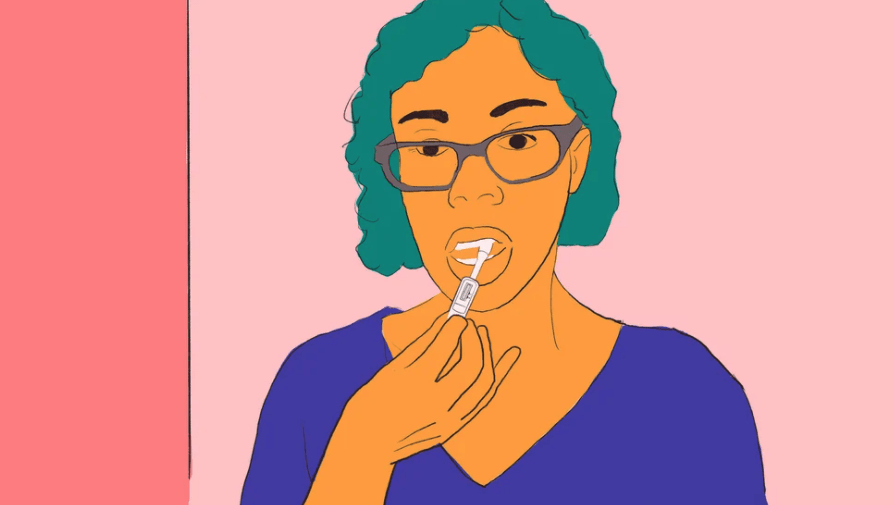In our programs around the world, Doctors Without Borders/Médecins Sans Frontières (MSF) teams are seeing how self-care can improve health care access and quality. For International Women’s Day, March 8, we’re highlighting the many ways self-care can empower women, girls, and transgender people in crisis-affected communities so they can enjoy healthier lives.
According to the World Health Organization (WHO), self-care is “the ability of individuals, families, and communities to promote health, prevent disease, maintain health, and cope with illness and disability with or without the support of a health care provider.”
As part of a patient-centered approach to health care, MSF is building the capacity for self-care into our programs. As evidence grows about the benefits of self-care, we are conducting trials to better understand what works well and for whom. We know that communities can often lead the way in improving their own care, and that no model is one-size-fits-all.
For every self-care option, MSF will always ensure that individuals have access to a trained health worker when they want or need one, and that they can be referred to the next treatment step without delay. This is extremely important, as self-care cannot be a substitute for physical and mental health care from a trained provider. It needs to be part of the continuum of care that includes the formal health system and community-based models of care. Self-care should add value, not be a second-best option for people otherwise excluded from health care.
MSF has always innovated to overcome barriers to access. With women and girls as our partners, we have the exciting opportunity to innovate further.
Self-administering contraception in Democratic Republic of Congo
Long-acting contraceptive injections have been available in MSF clinics for some time, but now women can manage them independently. In Ituri province in Democratic Republic of Congo, we’ve introduced the self-injectable, long-acting contraceptive Sayana Press, produced by Pfizer.
With guidance on how to safely handle a needle and instruction on self-injecting by clinical staff, women can take home up to four devices and self-inject every three months. This ensures access to highly effective contraception for up to a year without repeat visits to the clinic, which may be too time-consuming, difficult, or dangerous in this conflict-affected area.
Sayana Press can be stored at room temperature and is easy to carry, which is helpful in Ituri, where people are often forced to flee their homes for safety. Women report that they like its simplicity and ease of use. MSF provided about 3,000 doses of Sayana Press to women in MSF projects in Angumu, Nizi, and Drodro in 2020.
Self-testing for HIV in Eswatini
In Shiselweni district in Eswatini we’ve been offering oral HIV self-testing through our HIV and tuberculosis (TB) prevention and treatment program since May 2017. Eswatini has the highest prevalence of HIV in the world. Nationwide investment in comprehensive services has reduced transmission of the disease, but there is still considerable stigma attached to HIV, which is often associated with social inequality.
Knowledge is power, and for women, knowing their HIV status means they can take control of their own health. With a wait time of just 20 minutes for their results, people can test reliably once a month in the comfort of their home. Many women have taken the oral test and are also motivated to go further. If they are at particularly high risk for HIV, they are likely to start taking pre-exposure prophylaxis (PrEP) or to encourage others to test or start taking medication.
If a patient receives a positive test result, our counsellors can support them in person or via our hotline to self-manage and continue their lives on antiretroviral treatment.
Community and self-care for sex workers in Malawi
Self-care was central to a peer-led model of care at MSF’s HIV, TB, and sexual and reproductive health project for female and transgender sex workers in Malawi which ran from 2014 to 2020. Sex workers in Malawi have especially high rates of HIV and sexually transmitted infections and they often encounter sexual and gender-based violence. They also face multiple obstacles to receiving health care. Like sex workers in many other parts of the world, they are disadvantaged by low social and economic status, discrimination, and criminalization. In Malawi, MSF confronted this head-on by directly involving sex workers in our comprehensive package of care.
Sex workers joined the project to be trained as peer educators and community health workers. They in turn provided education and tools to their peers that touched on all three pillars of self-care: self-awareness, through promoting self-education; self-testing, via home tests for HIV and other conditions; and self-management, including prevention of unwanted pregnancy after unprotected intercourse or sexual violence.
Peer educators provided the proximity that allowed sex workers to have confidential access to information, care, and other support around the clock from individuals like them, who understood their lives and their challenges. The peer educators and community health workers then connected people to the nearest one-stop clinic for treatment and further support if necessary.
At the end of 2020, MSF handed over its activities to the Ministry of Health and to several community-based organizations for sex workers that were created by former MSF health staff.
Telecounseling for mental health care in the Palestinian Territories
In Nablus, in the Palestinian Territories, our specialized mental health project for people with moderate to severe mental illness and victims of violence treats children and adults, including survivors of domestic violence. Last year, as COVID-19 lockdowns restricted movement in communities around the world, survivors in Nablus were suddenly trapped at home with no escape. The only way MSF teams could reach them and continue our support was to pivot to telecounseling—something new for our therapists and patients alike.
Reports soon emerged that intimate partner violence was increasing around the world during the pandemic. The situation in Nablus was no different, and the abuse was increasing in severity as well, putting women’s safety at even greater risk. But as a testament to our patients’ resilience, they adapted and innovated. They worked with MSF therapists to develop safety plans, established self-care regimes to help reduce their anxiety, and chose code words to warn that their partner could overhear the counseling call. In fact, fewer women dropped out of counseling than was the norm before.
Once lockdowns eased, it was important to be able to see the highest priority patients face-to-face again, while observing safety protocols. But COVID-19 has shown that telecounseling can be feasible and effective, and it can be offered in addition to face-to-face therapy as another pathway to care.
Self-swabbing for HPV in Zimbabwe
Without better access to cervical cancer prevention, many women in high-prevalence countries like Zimbabwe will continue to face premature death. In Gutu district last year, MSF’s cervical cancer prevention and early treatment program, in partnership with the Zimbabwean Ministry of Health and Child Care, conducted a trial that compared the results of patients’ self-swabs for human papillomavirus (HPV) infection with swabs taken by a nurse.
The typical screening method—known as visual inspection with acetic acid, or VIA, the mainstay of MSF’s program and others like it—requires human resources, training, and equipment that can limit its implementation. We asked, what if the simpler high vaginal swab to collect an HPV DNA sample could be effectively conducted not only by nurses, but the women themselves? The answer is that it could significantly expand access to diagnosis for patients who are unable to access health care workers or clinics.
Our trial results demonstrated that nurses and patients were equally effective in collecting a sample. Most patients found the self-collection procedure comfortable, and almost all said they would recommend self-collection for HPV testing to a friend. MSF will further explore the preferences of women and nurses who have participated in this care.
Self-managed safe abortion care
Of all the sexual and reproductive health services, safe abortion care is the most restricted around the world. But thanks to medication abortion, which consists of a regimen of pills taken over 24 hours, the procedure has been simplified and made possible to manage in the privacy of one’s own home.
In MSF’s experience, self-managed abortion can be conducted in different ways. Individuals can come to the health facility for an assessment and to receive the drugs and instructions for use, then be remotely counseled and emotionally supported through the abortion until the process is complete. They would only need to visit the facility again if they have a (rare) complication or any concern. They will also receive family planning advice, and the contraceptive of their choice. Alternatively, individuals can be both assessed and supported remotely and receive the prescribed medication through a pharmacy or delivery.
Depending on the context, this can be a game-changer for people with an unwanted pregnancy, including those facing stigma for being unmarried, victims of rape, displaced people, or anyone who wants to manage their abortion privately and safely. The next step is for MSF to continue to adapt our services and make self-managed abortion care more accessible, for example by offering toll-free hotlines and home delivery of medication and instructions.
Moving forward and empowering individuals
There is great potential to expand high-quality, patient-centered care for women and girls through self-care approaches, especially in the contexts where MSF works—places affected by acute crises, or that are otherwise hard to reach. Self-care should always be linked to more formal care, but it can play a particularly useful role where there is little health infrastructure or few health workers. It can also be a lifeline for neglected and marginalized communities who may need care outside of the formal system.
From our experience working with health authorities, local organizations, and communities, we believe there is a lot we can do to help build the capacity for self-care and enable more people to contribute to their own health and wellbeing.
With the right information and tools, women can engage in their own care to stay healthy—no matter where they live.











